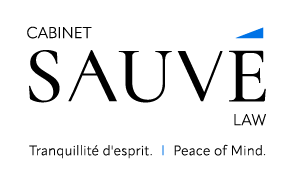Sole Proprietor, Partnership, or Corporation? A Guide to Choosing the Right Business Structure in Ontario
Your business idea is the spark, but your legal structure is the foundation. Let’s build it right from the start for lasting success and peace of mind.
Embarking on a new business venture is an exhilarating journey. You have a vision, a passion, and the drive to create something new. However, amidst the excitement of developing products, finding customers, and building a brand, one of the most critical foundational decisions you'll make is choosing the right legal structure for your business. This choice will have long-lasting implications for your personal liability, how you are taxed, and your ability to grow and raise capital.
Many entrepreneurs in Ontario rush this step, often defaulting to the simplest option without fully understanding the risks. At Cabinet Sauvé Law, we believe in building businesses on a solid legal footing to provide you with genuine Peace of Mind for the years to come. This guide will walk you through the three most common business structures in Ontario—the Sole Proprietorship, the Partnership, and the Corporation—so you can make an informed decision that aligns with your vision.
The Sole Proprietorship: The Simplest Starting Point
A sole proprietorship is the most straightforward way to structure a business. Legally, the business and the owner are considered one and the same entity. If you start operating a business on your own without formally setting up a different structure, you are, by default, a sole proprietor.
Who it’s for: This structure is often ideal for freelancers, independent contractors, consultants, and small, single-owner service or retail businesses where the risk of liability is relatively low.
Deep Dive: The Reality of Unlimited Personal Liability
The most significant characteristic of a sole proprietorship is unlimited personal liability. Because the law doesn't distinguish between you and your business, the two are financially intertwined. If your business incurs debts, you are personally responsible for paying them. If your business is sued, the lawsuit is against you personally.
Consider this scenario: You are a freelance event photographer. You take out a $20,000 loan to buy new cameras and equipment. Unfortunately, a downturn in business means you can no longer make the loan payments. The lender can not only seize your business assets (the camera gear) but can also seek a judgment against your personal assets—your car, your personal savings account, and even your home—to satisfy the debt. This direct pipeline between your business's finances and your personal life is the single biggest risk of this structure.
Taxation, Setup, and Costs
- Taxation: Simplicity is a key feature here. You don't file a separate tax return for the business. Instead, you report all business income and expenses on a T2125 Form (Statement of Business or Professional Activities), which is filed with your personal T1 income tax return. The net profit of your business is added to your other personal income (if any), and you are taxed at your marginal personal tax rate.
- Setup and Costs:
Setting up is incredibly easy and inexpensive. If you operate the business under your own legal name (e.g., "Jane Doe Consulting"), you don't have to do anything. If you want to operate under a trade name (e.g., "Apex Consulting"), you must register that name with the Ontario government. This is a simple online process.
Pros and Cons of a Sole Proprietorship
Pros:
- ✅ Simple and Inexpensive: Very easy and relatively inexpensive to set up and maintain.
- ✅ Full Control: You are the sole decision-maker.
- ✅ Simplified Taxes: All profits and losses are reported on your personal tax return.
Cons:
- ❌ Unlimited Personal Liability: Your personal assets are at risk.
- ❌ Limited Credibility: Can be perceived as less professional by some clients, lenders, or investors.
- ❌ Raising Capital is Difficult: You can't sell shares, and banks may be more hesitant to lend to a non-incorporated business.
- ❌ Limited Longevity: The business legally ceases to exist when the owner retires or passes away.
The Partnership: Teaming Up for Business
A partnership is formed when two or more people (or corporations) decide to carry on a business together with the goal of making a profit. It's a common structure for professional services firms (like accountants or designers) or for any business venture launched by multiple founders.
Who it’s for: Two or more co-founders who want to combine their skills and resources. It's crucial that the partners have a high level of trust in one another.
Deep Dive: The Danger of Joint and Several Liability
In a standard General Partnership, the liability risk is magnified. Like a sole proprietorship, partners have unlimited personal liability. However, it is also "joint and several." This means that each partner is individually responsible for 100% of the partnership's debts, regardless of who incurred them.
Consider this scenario: You and a partner start a small construction business. Your partner, without your full knowledge, signs a contract for a project that goes badly, resulting in a $100,000 lawsuit against the partnership for damages. The plaintiff can sue the partnership and both partners individually. If your partner has no personal assets, the plaintiff can come after you for the full $100,000, putting your personal home and savings at risk, even if you had nothing to do with the problematic contract. This is a staggering level of risk that must be fully understood.
The Partnership Agreement: Your Most Important Document
Because of the immense shared risk, no one should ever enter a partnership without a comprehensive, professionally drafted Partnership Agreement. This legal document is the rulebook for your partnership and is essential for providing clarity and Peace of Mind. It should clearly outline:
- Capital contributions of each partner.
- Roles, responsibilities, and decision-making authority.
- How profits and losses will be distributed.
- A process for resolving disputes.
- Exit clauses detailing what happens if a partner wants to leave, retires, or passes away (a buy-sell agreement).
Taxation, Setup, and Costs
- Taxation: Similar to a sole proprietorship, the partnership itself does not pay taxes. The net income "flows through" to the partners based on the profit-sharing ratio in the Partnership Agreement, and each partner reports their share on their personal T1 tax return.
- Setup and Costs: A partnership must be registered with the Ontario government. The primary cost should be the legal fees for drafting a robust Partnership Agreement, which is an absolutely non-negotiable investment.
Pros and Cons of a Partnership
Pros:
- ✅ Relatively Easy to Set Up: Simpler and less expensive than incorporation.
- ✅ Combined Resources: Allows partners to pool their money, skills, and experience.
- ✅ Simplified Taxes: No separate corporate tax return is required.
Cons:
- ❌ Unlimited, Joint and Several Liability: The highest level of personal risk.
- ❌ Potential for Conflict: Disagreements between partners can destroy the business.
- ❌ Instability: The partnership can dissolve if one partner decides to leave.
The Corporation: A Separate Legal Entity
A corporation is the most complex and formal business structure. When you incorporate your business, you are creating a separate legal entity, distinct from its owners (who are called shareholders). Think of the corporation as its own "person" in the eyes of the law—it can own property, enter contracts, incur debt, and sue or be sued, all in its own name.
Who it’s for: Businesses that are planning to grow, have employees, seek outside investment, or operate in an industry with a higher risk of lawsuits. It is also for founders who want to strictly separate their personal finances from their business finances.
Deep Dive: The Protection of the "Corporate Veil"
The single greatest advantage of a corporation is limited liability. Because the corporation is a separate entity, its debts and legal obligations belong to the corporation itself, not to its shareholders. This creates a protective barrier, often called the "corporate veil," between the business's liabilities and your personal assets. If the corporation fails or is sued, your personal risk is generally limited only to the amount you have invested in the company. The bank can't seize your house to pay a corporate loan (unless you have provided a personal guarantee, which is a common requirement for new corporations). This protection is the ultimate source of financial Peace of Mind for a serious entrepreneur.
Taxation: Flexibility and Complexity
Corporate taxation is more complex but offers significant advantages.
- Corporate Tax Return: The corporation files its own T2 tax return and pays corporate income tax.
- Lower Tax Rates: In Canada, active business income earned by a Canadian-controlled private corporation is taxed at a much lower rate (the "Small Business Deduction") than personal income tax rates, up to a certain threshold.
- Tax Deferral: This lower rate allows you to leave more after-tax money in the corporation to reinvest in growth. You only pay personal income tax on the money you draw out of the corporation as a salary or dividends. This flexibility is a powerful financial planning tool.
Setup and Ongoing Obligations
- Setup and Costs: Incorporation is the most expensive and complex option. It involves filing Articles of Incorporation with the government, creating corporate by-laws, and setting up a minute book to hold all corporate records (share certificates, director resolutions, etc.).
- Ongoing Compliance: Corporations have mandatory annual obligations, including holding shareholder and director meetings, filing an annual corporate return, and maintaining the minute book.
Pros and Cons of a Corporation
Pros:
- ✅ Limited Personal Liability: The best protection for your personal assets.
- ✅ Enhanced Credibility and Professionalism: Appears more established to clients, suppliers, and lenders.
- ✅ Tax Advantages: Potential for lower tax rates and tax deferral.
- ✅ Perpetual Existence: The business continues to exist even if ownership changes.
- ✅ Easier to Raise Capital: You can bring in investors by selling shares.
Cons:
- ❌ More Complex and Expensive: Higher setup and ongoing administrative costs (legal and accounting).
- ❌ More Administrative Work: Requires strict record-keeping, annual meetings, and filings.
- ❌ Potential for Double Taxation: Corporate profits are taxed, and then dividends paid to shareholders are taxed again personally (though tax integration rules in Canada are designed to mitigate this).
A Simple Comparison Table
| FEATURE | SOLE PROPIETORSHIP | GENERAL PARTNERSHIP | CORPORATION |
|---|---|---|---|
| Owners Liability | Unlimited | Unlimited (Joint & Several) | Limited to amount invested |
| Taxation | Personal T1 Return | Personal T1 Return (for each partner) | Separate T2 Corporate Return + Personal T1 on Salary/Dividends |
| Setup Costs & Complexity | Very Low & Simple | Low & Simple (but also requires a Partnership Agreement) | Higher & complex (requires legal assistance) |
| Continuity | Ends with Owner | Dissolves if a Partner leaves | Perpetual existance with proper maintenance |
| Best For | Freelancers, consultants, low-risk solo ventures | 2+ founders with high trust, professional services | Businesses planning to grow, hire, or seek investment |
Conclusion: Making the Right Choice for Your Vision
While we've referred to structures like a sole proprietorship or partnership as "simple," that simplicity refers only to the initial registration process. The reality is that any business venture, regardless of its structure, operates within a complex web of legal obligations. Seeking professional legal advice from the outset is always the wisest course of action. An experienced lawyer can ensure your business name is properly registered and cleared, consult on industry-specific licensing, review contracts with suppliers or clients to limit your liability, and, most critically for partnerships, draft the foundational agreement that will prevent costly disputes in the future. Viewing legal counsel as a foundational investment, rather than a cost, is a key trait of successful entrepreneurs.
Choosing a business structure is not a one-size-fits-all decision. The simplicity of a sole proprietorship may be perfect for your freelance career today, but the liability protection and tax benefits of a corporation may be essential for the fast-growing company you plan to build tomorrow.
This decision is the legal and financial foundation upon which your entire business will be built. Making the right choice at the outset can save you from enormous stress, financial risk, and legal complications down the road. You don't have to make this critical decision alone.
Contact the experienced Corporate Law team at Cabinet Sauvé Law today. We'll take the time to understand your business, your goals, and your risk tolerance to help you choose the structure that provides the strongest foundation and the greatest Peace of Mind.










